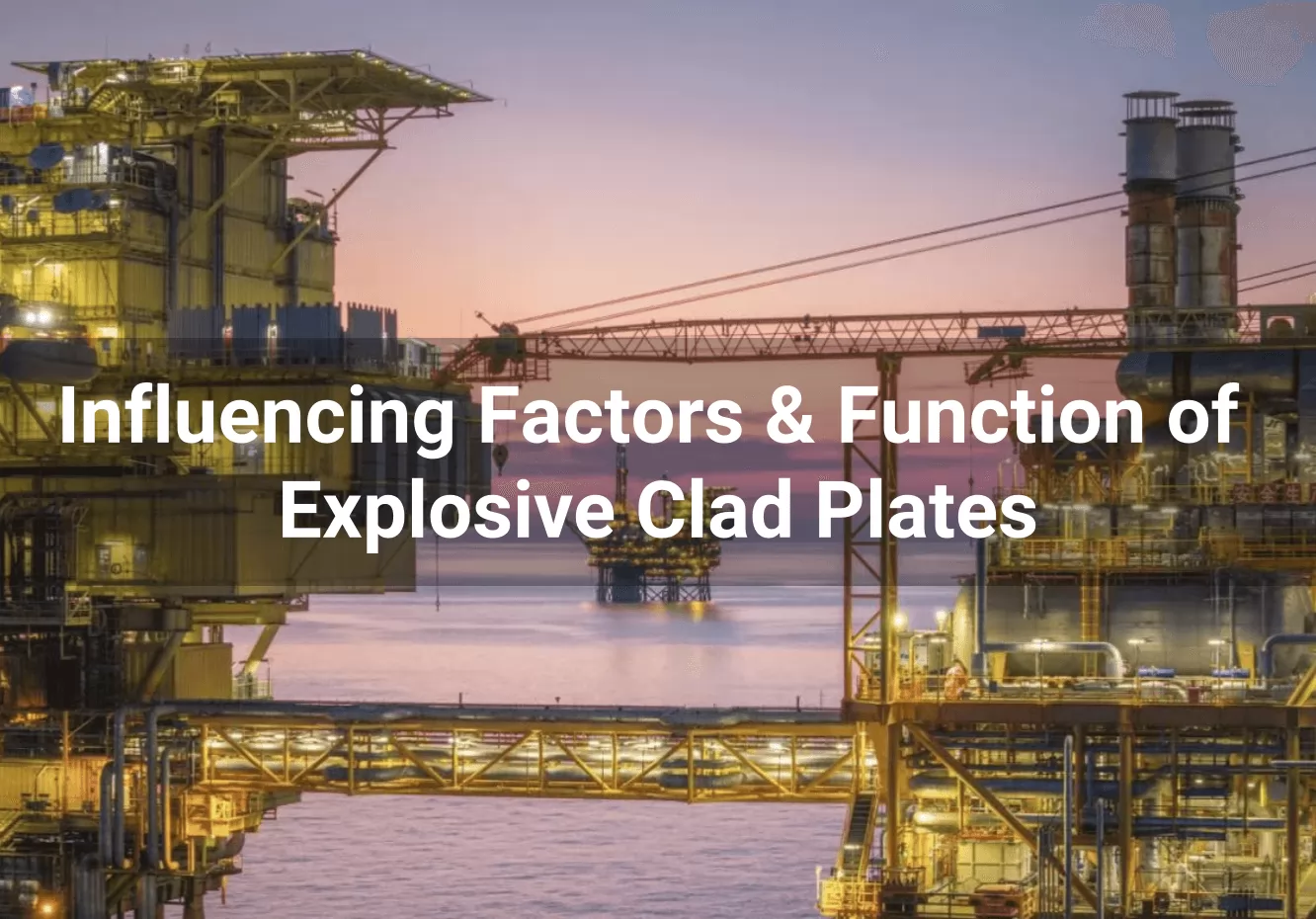


Explosion bonded clad plates represent a groundbreaking innovation in material science, combining the strengths of multiple metals through a process known as explosive welding. This technique involves using controlled explosive energy to bond two or more different metal plates together, resulting in a composite material that offers superior performance compared to traditional welding methods. The explosive cladding process is unique in its ability to create a strong, durable bond between metals with vastly different properties, such as titanium and steel or nickel and steel.
These composite materials are gaining increasing importance in industries where high-performance materials are essential, such as petrochemicals, nuclear power, and metallurgy. Explosion bonded clad plates provide a cost-effective solution for applications requiring materials with both high strength and excellent resistance to extreme environments. In this article, we will explore the key factors that influence the production and performance of explosive clad plates, as well as their wide range of applications across various industries.
Affecting Factors of Explosion Bonded Clad Plates
Explosion bonding parameters such as explosion energy, explosion distance, and explosion velocity can affect the effect of explosion shock waves and the formation of clad interfaces.
There are some differences in the properties of different metals, which can affect the deformation, melting and bonding of metal plates during explosive welding.
Factors such as the cleanliness, roughness, and degree of oxidation of the clad interface can affect the bonding strength and stability of the clad interface.
Factors such as temperature, humidity, gas composition can affect the explosion process and the formation of clad interfaces.
Explosive clad plates will not cause delamination or cracking in subsequent production,and have a higher bonding strength and tensile strength.
The explosive clad method can produce various metal clad plates,such as Titanium/Steel,Nickel/Steel,Zirconium/Steel,Aluminum/Steel,Stainless Steel/steel,etc., which can fully utilize the performance of different metal materials.
Explosion bonded clad plates are now widely used in Petrochemical, Metallurgy, Salt & Alkali Production, Hydraulic Industry, and Nuclear Power.
In conclusion, explosive clad plates have become a significant new type of metal clad material for metal fabricators.
Explosion clad plates are transforming the landscape of metal fabrication with their superior performance, diverse material combinations, and wide-ranging applications. By leveraging explosive welding technology, these composite materials deliver exceptional bonding strength, durability, and resistance to delamination, making them a reliable choice for critical industries such as petrochemical, metallurgy, nuclear power, and hydraulic systems.
The ability to combine materials like titanium, nickel, zirconium, and stainless steel with steel through explosive cladding maximizes the benefits of each metal's properties, offering tailored solutions for complex industrial challenges. Furthermore, the method's adaptability to varying metal types and environments underscores its value in addressing the evolving demands of modern engineering and manufacturing.
As industries seek innovative materials to improve efficiency, reduce costs, and enhance operational safety, explosive clad plates are poised to become an indispensable solution. Whether for high-pressure environments or corrosion-resistant applications, these advanced composite materials ensure lasting performance and exceptional reliability. Embrace the future of metal fabrication with explosive clad plates, and unlock new possibilities for your industrial projects.



Fugo Tech is focused on the manufacturing of clad metal plate and distributes the Stainless Steel, Titanium, Nickel Alloy, Zirconium and other non-ferrous metal pipes, fittings, flanges, and fasteners.